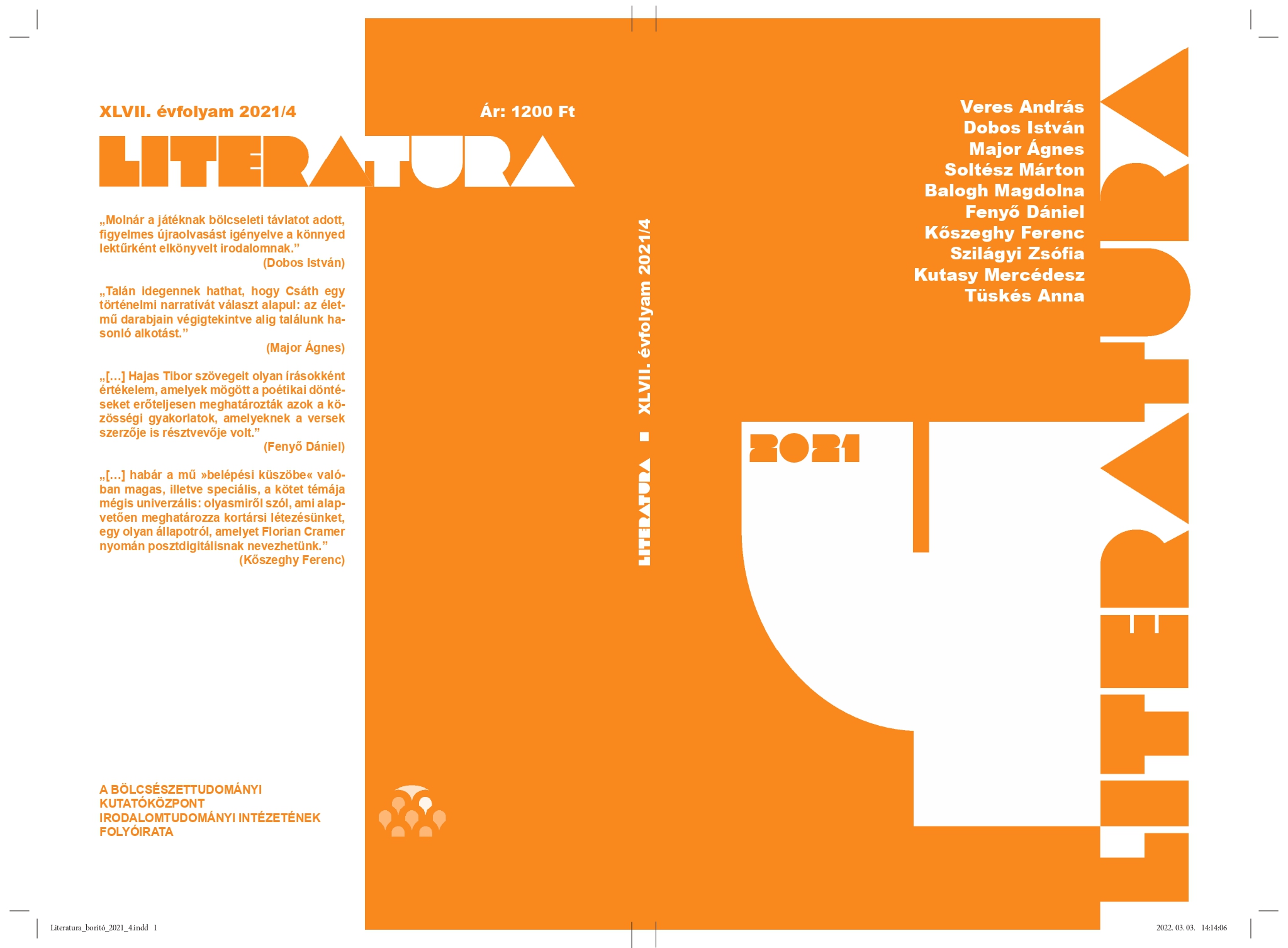Posztdigitális állapot és újmediális tapasztalat Kerber Balázs Conquest című művében
Abstract
The Post-Digital State and New Media Experience in Balázs Kerber’s Conquest
Digital technologies have changed the infrastructure (and consequently cultural-social structure) of the world. This raises the question of how Hungarian literature reacts to this changed state (the post-digital state as Florian Cramer calls it) or how is it transformed by it. Or, from another point of view, we can say that literature (and culture at whole) creates cognitive processes, and these cognitive processes are the only ways for us to interact with the world around us. Therefore, if we want the understand the new digital world, we have to explore the ability of our literature to imagine the world in relation to the digitalization of our world, and in relation to the new power-dynamics that this digitalization has brought.
In this paper, I try to present these questions through a case study of Balázs Kerber’s Conquest. Kerber’s work tries to depict mental images of the new media, which is strongly related to the above-mentioned post-digital state. His depictions draw mostly on videogames, especially on Civilizaton. However, Kerber’s work is somewhat unique, because the digital is not just a theme in it, but a poetics-transforming force. I therefore examine the concepts, poetics and aesthetics of his work (critically) form the angle of the digital, using mainly the work of Lev Manovich, Alexander R. Galloway, and Jean Baudrillard.



